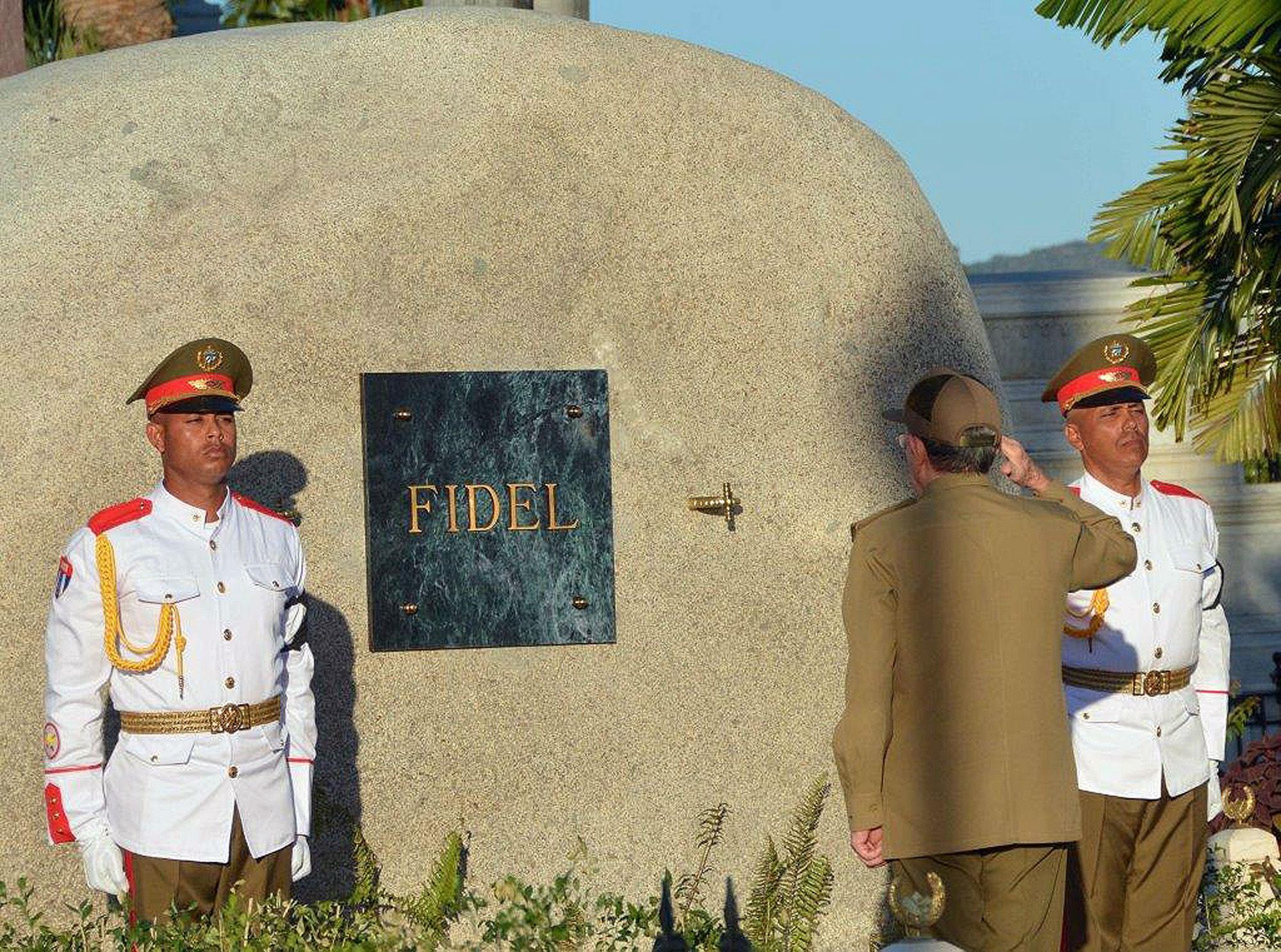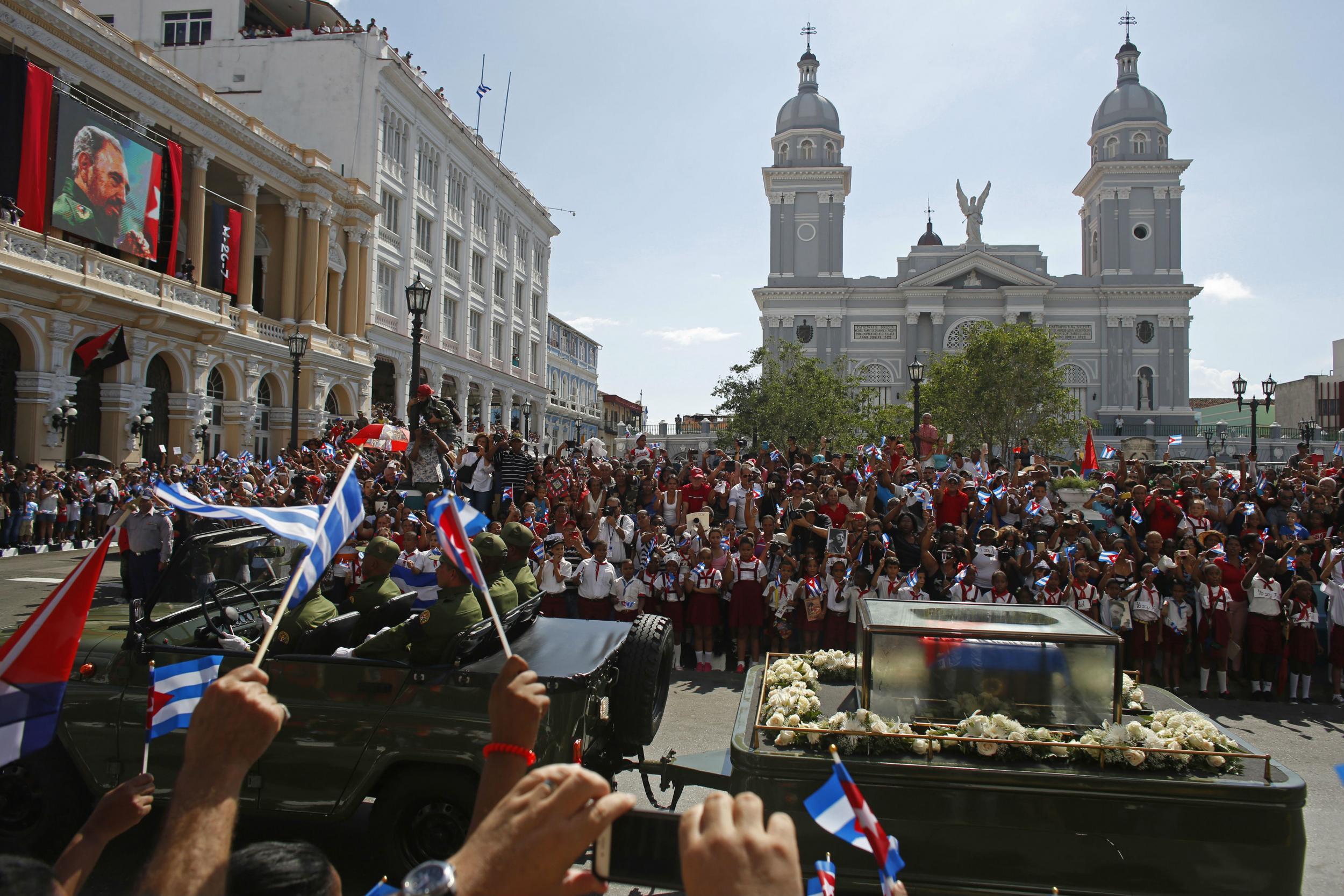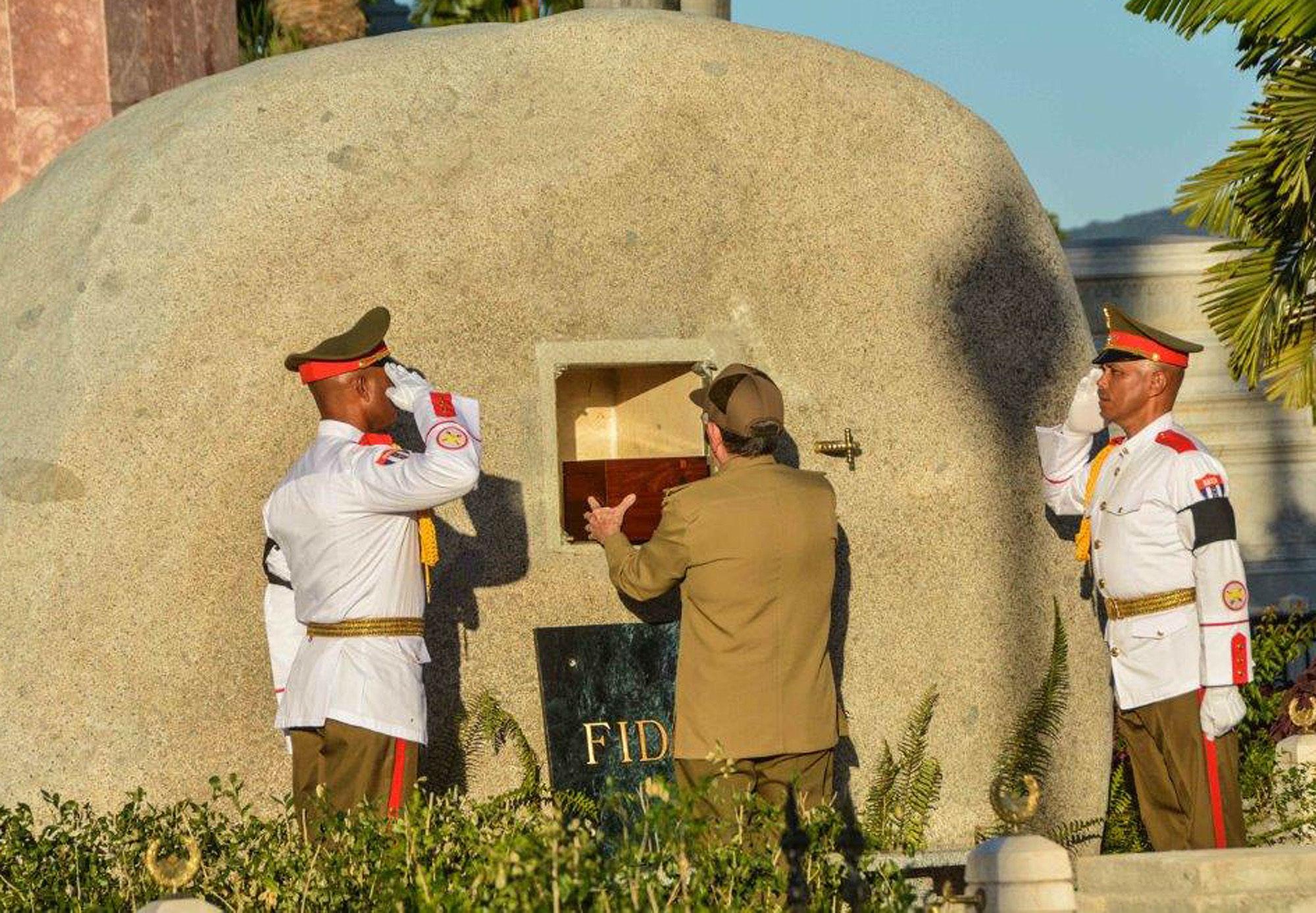Fidel Castro's ashes interred in private ceremony as Cuba mourns its long-standing leader
Authorities took a last minute decision to make the funeral service private

Your support helps us to tell the story
From reproductive rights to climate change to Big Tech, The Independent is on the ground when the story is developing. Whether it's investigating the financials of Elon Musk's pro-Trump PAC or producing our latest documentary, 'The A Word', which shines a light on the American women fighting for reproductive rights, we know how important it is to parse out the facts from the messaging.
At such a critical moment in US history, we need reporters on the ground. Your donation allows us to keep sending journalists to speak to both sides of the story.
The Independent is trusted by Americans across the entire political spectrum. And unlike many other quality news outlets, we choose not to lock Americans out of our reporting and analysis with paywalls. We believe quality journalism should be available to everyone, paid for by those who can afford it.
Your support makes all the difference.He outlasted nine US presidents and stood at the helm of a revolution that has altered the course of Cuba for more than 50 years. Even after he stood down as the country’s leader 10 years ago, a decision he made as a result of poor health, he continued to exert a powerful, wide-ranging influence.
On Sunday, Cuba's nine days of mourning for Fidel Castro came to a dramatic climax, as his ashes were interred in a private ceremony in the east of the nation.
A military caravan bearing Castro’s remains in a flag-draped cedar coffin left the Plaza of the Revolution in the eastern city of Santiago at 6.39am. Many thousands lined the two-mile route to the Santa Ifigenia cemetery, waving flags and shouting “Long live Fidel”.
The Cuban military fired a 21-gun salute and crowds at the entrance to the cemetery sang the national anthem as the ashes entered about 40 minutes later.
The ceremony lasted more than an hour and took place out of the public eye after Cuban officials made a last-minute cancellation of plans to broadcast the events live on national and international television.
International media were also barred from the event.
Those in attendance included Castro’s wife, Dalia Soto del Valle, other members of his family and presidents Nicolas Maduro of Venezuela and Daniel Ortega of Nicaragua, among others. The gathering lasted around 90 minutes.

In keeping with his wishes, Castro’s image will not be immortalised with statues and public places will not be named after him, said his brother, President Raul Castro.
“The leader of the revolution rejected any manifestation of a cult of personality and was consistent in that through the last hours of his life, insisting that, once dead, his name and likeness would never be used on institutions, streets, parks or other public sites, and that busts, statutes or other forms of tribute would never be erected,” Mr Castro told a large crowd on Saturday.
Castro’s cremated remains were due to be placed a few steps from the mausoleum of independence hero Jose Marti, another towering figure of Cuban history who the “Maximum leader” had long admired.
Castro, who had been out of power for a decade, died on November 25. In his final years he wrote a periodic column on world and local matters and received foreign dignitaries at his home on the outskirts of Havana.
Forced to step down due to an intestinal ailment, Castro ceded power to his younger brother Raul, the current president; at first provisionally in 2006, then definitively in 2008. Cuba has not revealed the cause of his death.

Castro ruled for 49 years, and was the longest-serving head of state, other than Queen Elizabeth, after overthrowing a US-backed dictator in 1959.
He went on to align Cuba with the Soviet Union and for decades was involved in a stand-off with the US.
The US responded with a strident economic blockade that initially rocked Cuba, but which Castro also used for political propaganda purposes.
In late 2014, the US and Cuba have embarked on a strategic and diplomat realignment, and earlier this year Barack Obama visited Havana.
President-elect Donald Trump has threatened to reverse Mr Obama’s rapprochement after he assumes office on January 20 unless Cuba enacts further internal changes.
Subscribe to Independent Premium to bookmark this article
Want to bookmark your favourite articles and stories to read or reference later? Start your Independent Premium subscription today.
Join our commenting forum
Join thought-provoking conversations, follow other Independent readers and see their replies
Comments